
Animal
11:15, 28-May-2019
Monkey Mania: The Yunnan snub-nosed monkey
By Li Yunqi
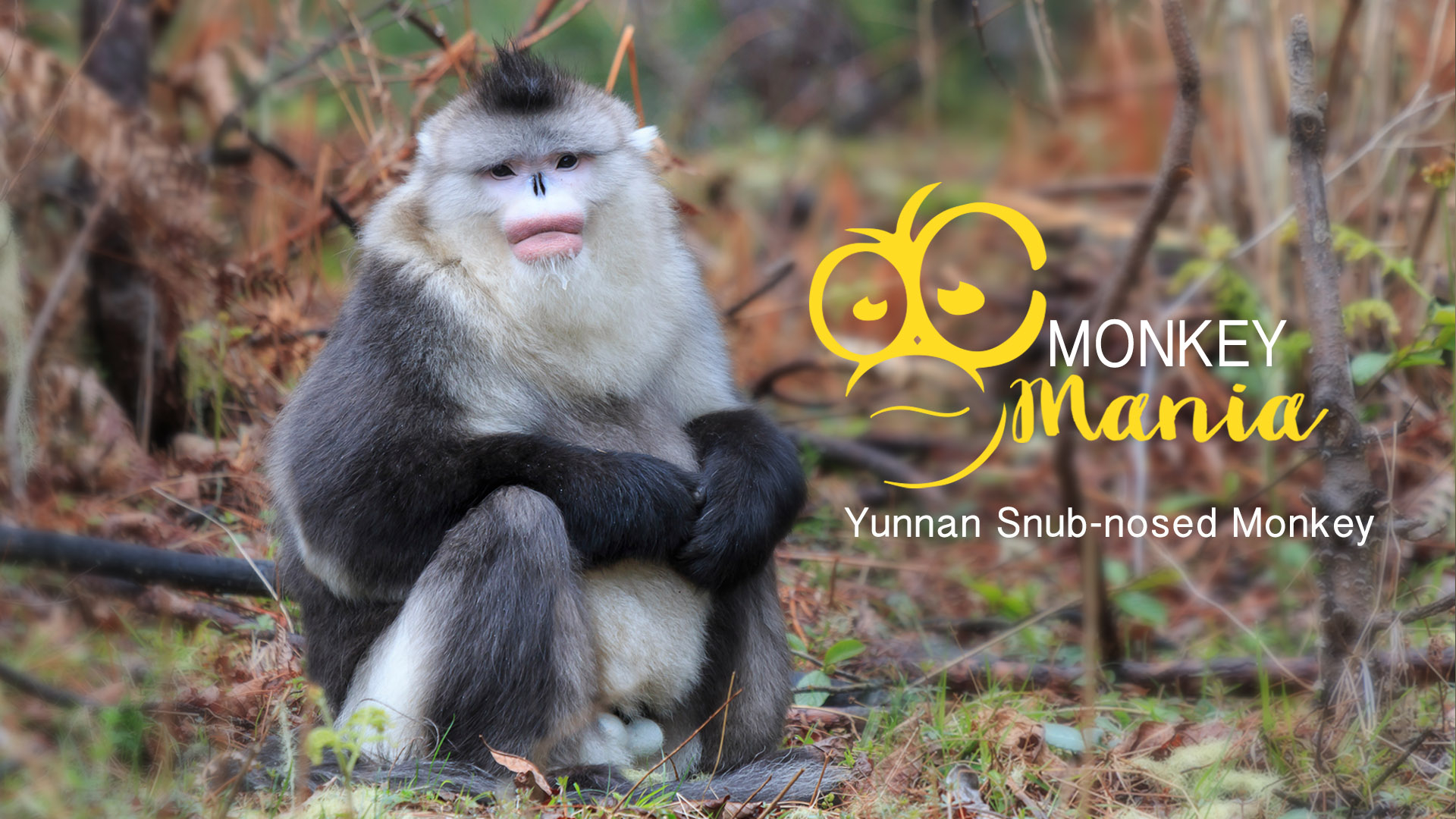
Fluffy and chubby, the black and white Yunnan snub-nosed monkey is probably one of the most distinctive-looking monkeys in the world. One glance at its plump and pink lips, the Mohawk style hair, the round and white belly, and the human-like facial expression will inevitable make you fix eyes on this adorable creature.
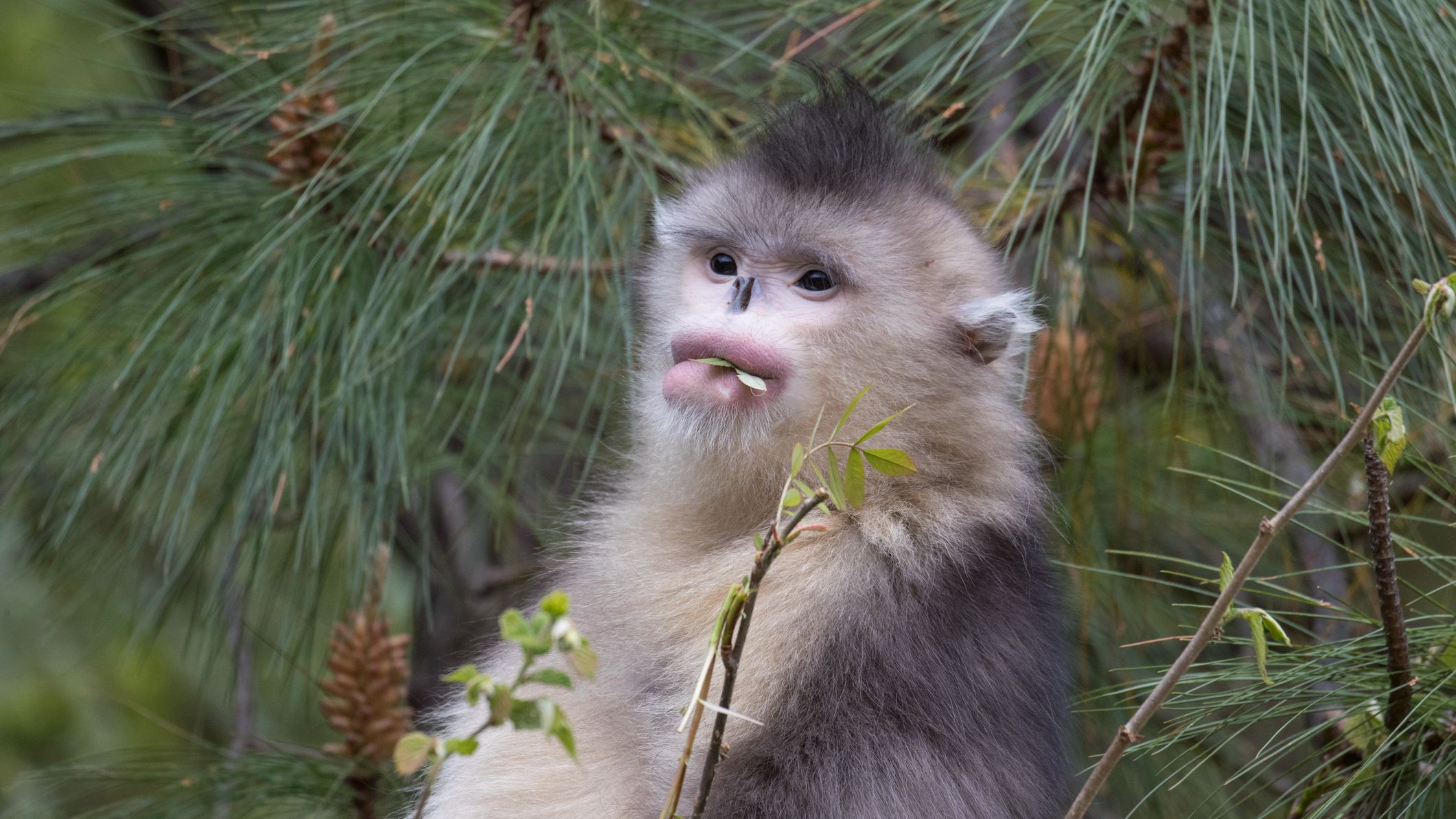
Adorable moment of a Yunnan snub-nosed monkey is chewing tender leaves. /VCG Photo
Adorable moment of a Yunnan snub-nosed monkey is chewing tender leaves. /VCG Photo
The Yunnan snub-nosed monkey, also known as the black snub-nosed monkey, lives at the highest altitude that any primate (apart from human) can survive. They inhabit the forests at the altitude between 2,500 to 5,000 meters in southwestern China. The global population of this endangered species is only around 3,000.
The picky gourmet
Unlike other monkeys that have diversified diets, the Yunnan snub-nosed monkey spends 91 percent of its feeding time on lichen (Bryoria nepalensis) on firs. It mainly consists of fibers and little protein; therefore, the monkeys have to consume a large amount of it every day.
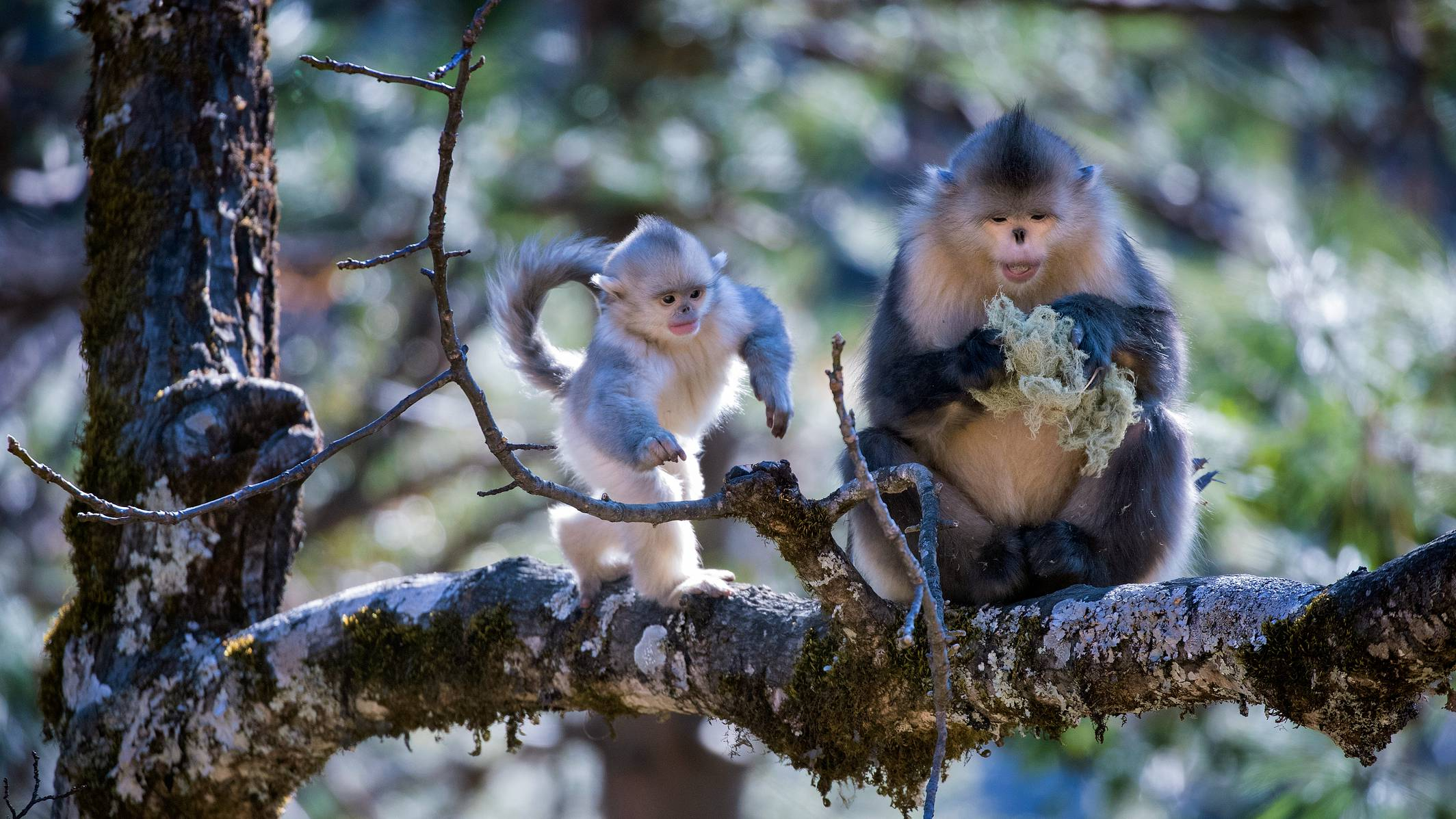
A mother monkey is savoring her favorite lichen while her child is running playing around. /VCG Photo
A mother monkey is savoring her favorite lichen while her child is running playing around. /VCG Photo
This type of yarn-like lichen extracts nutrition from the first and would kill a fir if there are too much of it. The monkey's dependence on this type of lichen ensures the healthy growth of the firs. However, this lichen grows very slowly. It takes ten to 20 years for it to regenerate.
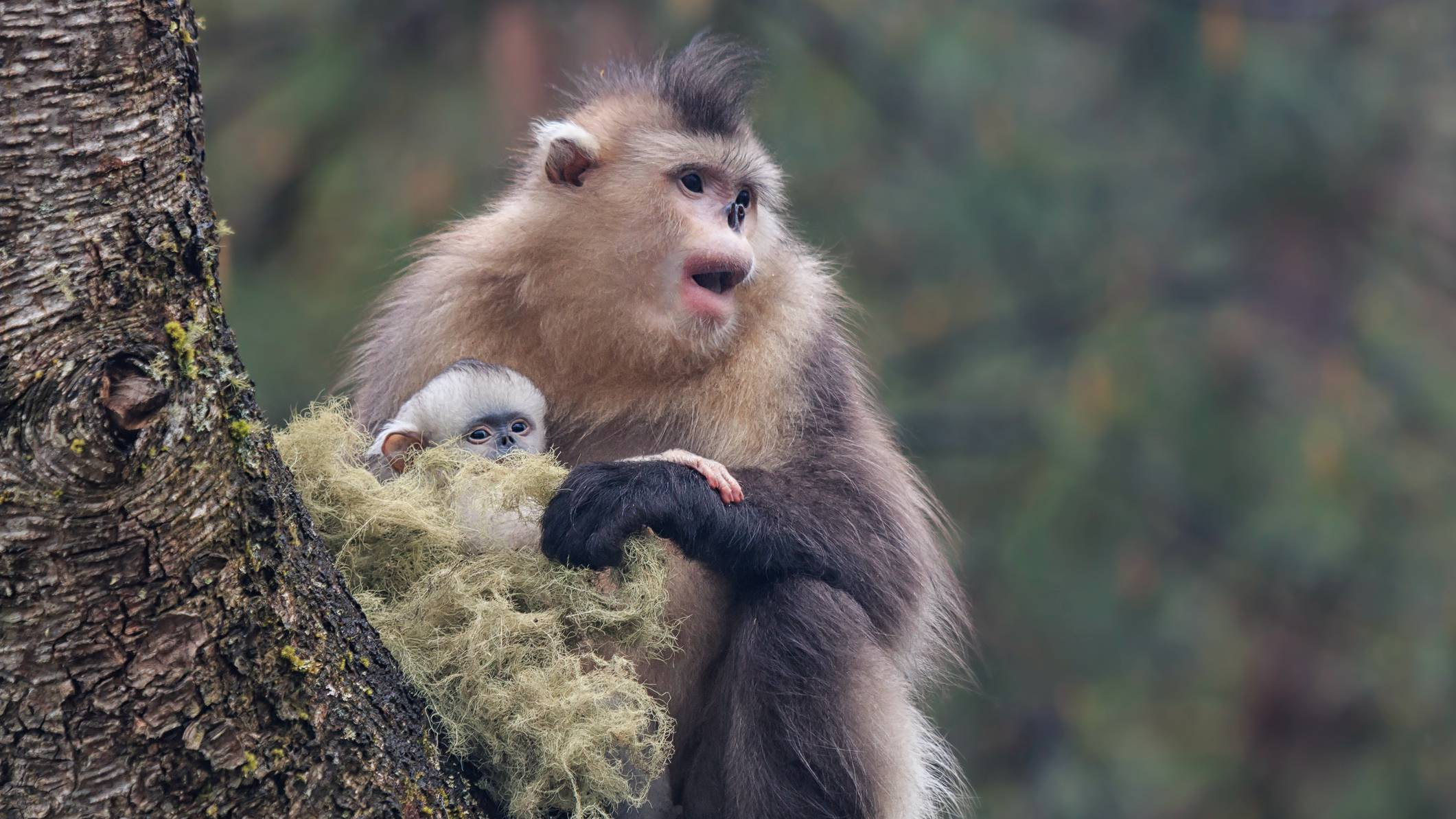
Yunnan snub-nosed monkeys spend a considerable amount of time on eating lichen. /VCG Photo
Yunnan snub-nosed monkeys spend a considerable amount of time on eating lichen. /VCG Photo
Having a huge demand for lichen, the Yunnan snub-nosed monkey has to wander around the forests to find food sources. Sometimes it takes a monkey group to migrate more than ten kilometers to find a new foraging site.
Interesting behaviors
Even though the monkey's predators such as bears and vultures kill about ten to 20 cubs each year, it is hard to find bodies of dead monkeys. When a monkey is dead, its fellows will collect leaves and bury it. This extraordinary ritual makes the bodies hard to be detected. However, whether this is a social behavior or out of practical reasons remains unknown today.
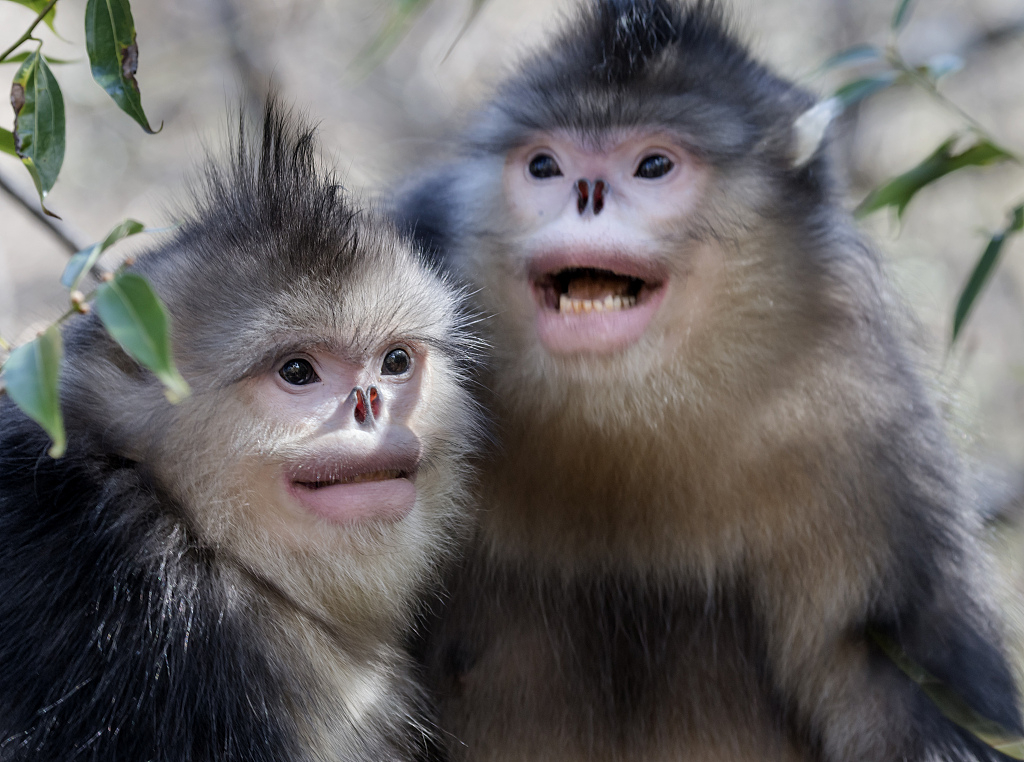
Close up of two Yunnan snub-nosed monkeys. /VCG Photo
Close up of two Yunnan snub-nosed monkeys. /VCG Photo
Apart from the interesting burial convention, the Yunnan snub-nosed monkey society exhibits a high level of harmony. A group of monkeys would take turns to drink water, and let the elders and juveniles to go first.
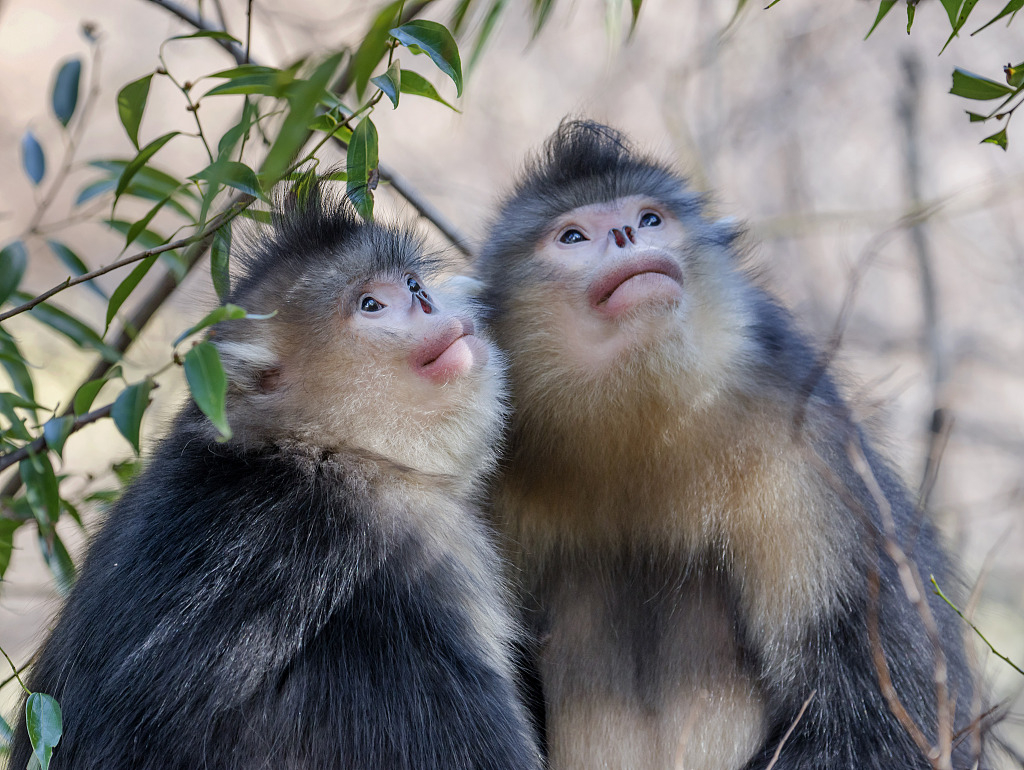
This two have spotted something interesting from above. VCG Photo
This two have spotted something interesting from above. VCG Photo
It is very difficult to observe the female Yunnan snub-nosed monkeys in labor. Like most primates, the female monkeys give birth at night and would eat their placentas afterward to eliminate their scent. In this way, they can avoid their predators' search and supplement nutrition.
Conservation status
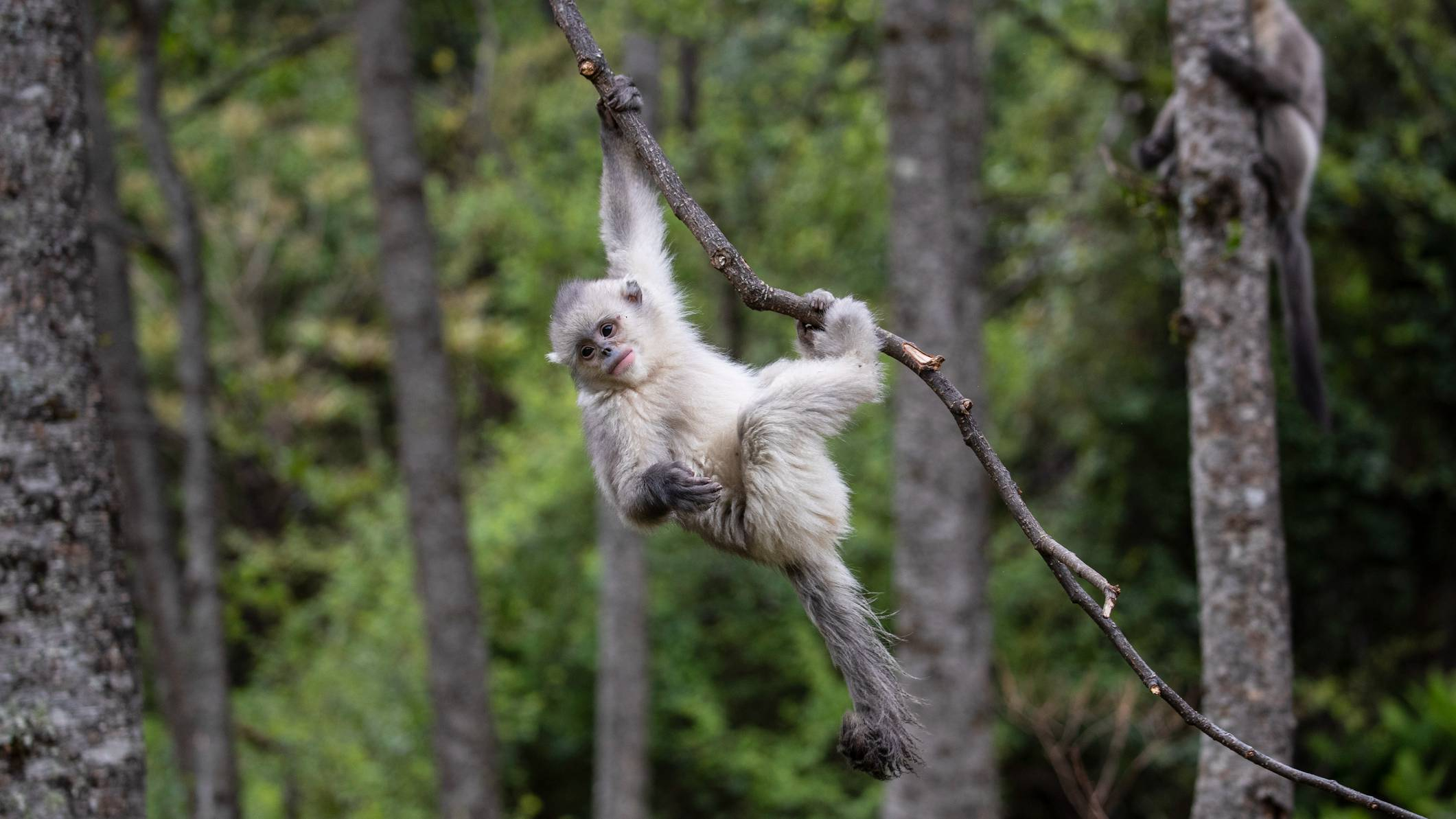
A baby monkey is swinging on a branch. /VCG Photo
A baby monkey is swinging on a branch. /VCG Photo
According to results of a joint scientific expedition led by Chinese and French scientists in 2013, the population of Yunnan snub-nosed monkey has reached around 3,000 from around 2,000 in 1996. In November 2017, a two-year monitoring program of the Yunnan snub-nosed monkey was launched in Yunnan Province.
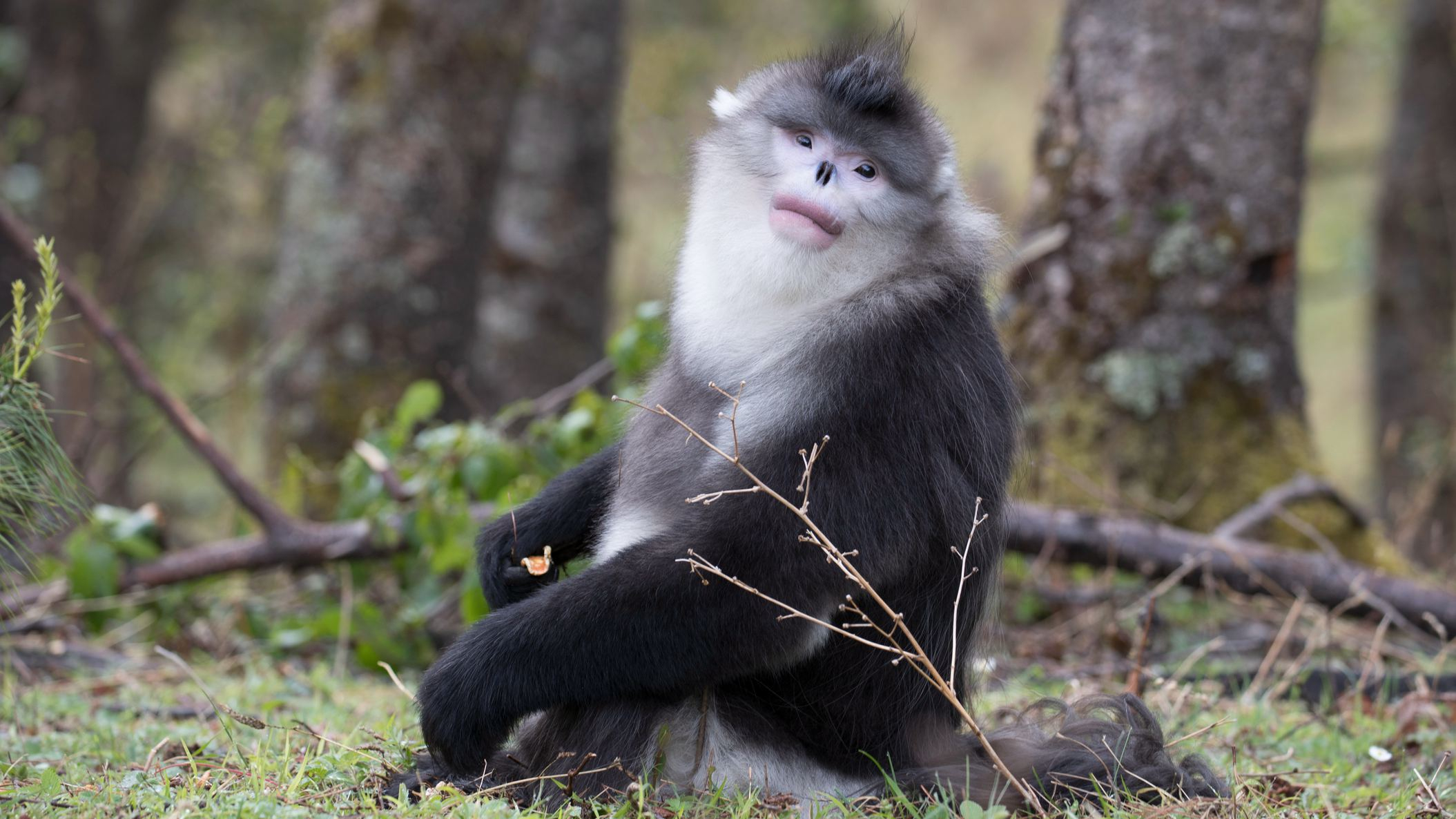
The population of Yunnan snub-nosed monkey has seen a steady increase in the past 20 years. /VCG Photo
The population of Yunnan snub-nosed monkey has seen a steady increase in the past 20 years. /VCG Photo
There are 18 groups of the monkeys scattering throughout the mountains in Yunnan Province and Tibet Autonomous Region. Most of them live in the Baima Snow Mountain Nature Reserve in Yunnan.
(Cover image designed by CGTN's Li Yueyun.)
(If you want to contribute and have specific expertise, please contact us at nature@cgtn.com.)

SITEMAP
Copyright © 2018 CGTN. Beijing ICP prepared NO.16065310-3
Copyright © 2018 CGTN. Beijing ICP prepared NO.16065310-3